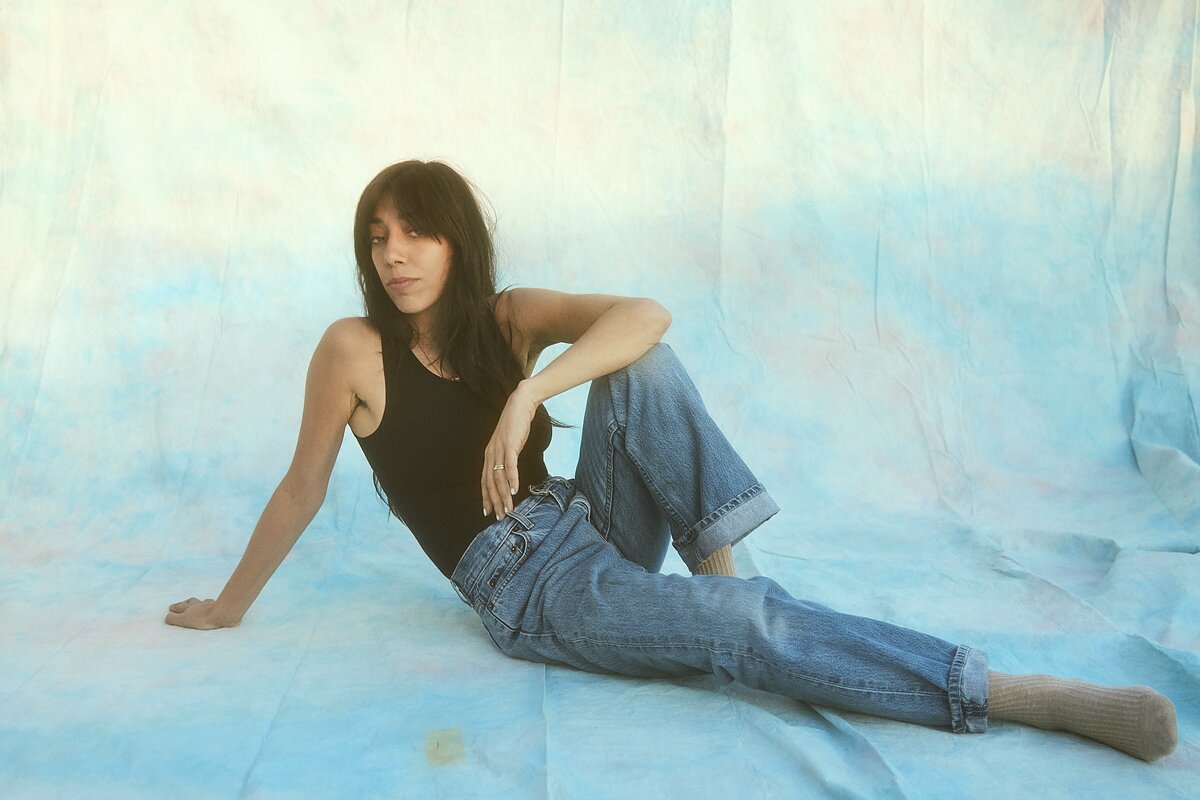Rahill Jamalifard on Writing Music as the Daughter of Iranian Immigrants
There’s a refreshingly sincere simplicity that shines across Rahill Jamalifard’s music. Her most recent record, Flowers At Your Feet, is no exception. Drenched in bright, reverberating samples; a thumping, steadily churning rhythm; and infectious, easy melodies, the album is a sparkling debut for Jamalifard as a solo artist; she previously fronted the psychedelic all-girl band Habibi. Written over the course of the last three years, Flowers At Your Feet is deeply personal and reflective. “It’s healthy, it’s healing; what mom said she told me. I’m old now, I know it. I’m growing, I’m growing,” sings Jamalifard in her characteristically clear and relaxed cadence on the opening track, “Healing.” Playing in the background are voicemails from family members in English and Farsi and audio clips from home videos. “And days pass real easy,” goes the song’s refrain.
Family is a throughline on the record, with songs devoted to her relationships with her sister and father—"He reads me tortured stories of heroes who died unnamed, The Prophet’s words of glory, the devil’s fortress of shame. Outside the world’s going by and dad’s inside my head,“ she sings in "Ode to Dad"—and the recent passing of her aunt—"I wonder if she is happy. I wonder if she can feel my warmth.”
This past March, The Amp‘s Shannon Lee spoke with Jamalifard over Zoom ahead of the record’s release to discuss its inspirations, the role of music growing up in AAPI families, and being oldest daughters of immigrant parents.
RJ: I started with writing poetry and drawing. Those were things that I just did at school and excelled in and connected to the most. In our house, my dad was always playing music. To this day, he’s constantly sharing songs on WhatsApp. I’m the oldest sibling so everything I found earlier on was from my dad which is why I developed such a strong connection to traditional Iranian music. I don’t know how common that is for first generation kids.
I never thought I had the tools to become a musician; it was just something I loved. We didn’t have cable growing up so when I went to my uncle’s house, I’d run downstairs, turn on MTV and BET, and immerse myself in these worlds of R&B and pop. I would check out CDs from the library; it wasn’t as easy to search for cool music back then! Music was something that really mystified me because it didn’t feel as accessible. I wanted to be a rapper when I was a kid. It just seemed so cool to have swag. My parents signed me up for piano lessons but it was with a 60-year-old lady that would fall asleep; I wanted to be rapping and dancing like Salt-n-Pepa or Aaliyah.
RJ: I was talking with my producer, Alex Epton, about doing an EP of covers. He’s a kindred spirit and we start every session by listening to music. We had listened to Kim Jung Mi in the studio before and I wanted to pick artists that not only felt personally resonant but who were also not as known. Alex was the one who suggested the song and I was so obsessed with the idea! Then I got home and was like, “I don’t know how to sing in Korean! This is way too ambitious.” But I was determined; if there was a way to make it work, I was going to try.
I ended up asking my friend Mindy Seu, who translated the lyrics from Korean to English with her mom. Mindy’s Korean is good but it’s more conversational. It ended up being that in order to translate the song properly, it was necessary for both Mindy and her mom to work together. Then I took the lyrics from English to Farsi with the help of my dad. It’s something I’ve done a bunch with him, and it’s always so fun asking him for synonyms between the Farsi used for casual speech versus poetry. I love this song because it ended up being this unique family affair.
